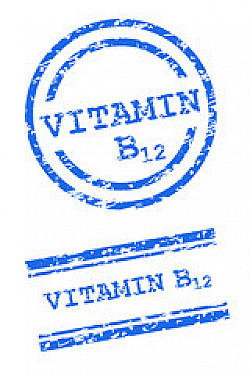A simple way to look at sugar
Not all sugar is bad. It depends on the source.
- Reviewed by Howard E. LeWine, MD, Chief Medical Editor, Harvard Health Publishing; Editorial Advisory Board Member, Harvard Health Publishing

Sugar can be a confusing substance. On one hand, consuming too much sugar is linked to weight gain, diabetes, and cardiovascular disease. On the other, high amounts of sugar are found in many nutritious foods, including some fruits, vegetables, and grains.
So, should you avoid sugar as much as possible or just consider the source? "Sugar provides energy that our cells need to survive, so it has an essential role in nutrition," says Dr. Walter Willett, professor of epidemiology and nutrition at Harvard's T.H. Chan School of Public Health. "The problem with sugar is that people often consume too much of the wrong kind."
Sugar basics
There are two sugar subtypes: monosaccharides (consisting of one molecule) and disaccharides (two molecules). The monosaccharides include such sugars as glucose, fructose, and galactose. The major disaccharides are sucrose (table sugar), lactose, and maltose. All these sugars are considered "natural" when they are found in whole foods. For instance, fructose, glucose, and sucrose are main ingredients in fruit and some vegetables, while lactose is found in dairy products and maltose in grains.
Natural sugars are generally okay, because when you eat the foods that contain them, you also ingest many healthy nutrients, like fiber and protein, and high levels of phytochemicals, antioxidants, and essential vitamins and minerals.
The more problematic sugar is the refined kind, which is processed mostly from sugar cane, sugar beets, and corn. It's known as added sugar when it's used in food products to help improve taste. "Refined sugar is cheap to produce, so it gets poured into all kinds of processed foods," says Dr. Willett. The leading dietary sources of added sugars are sweetened beverages, desserts (cookies, cakes, ice cream), many breakfast cereals, and fruit-flavored yogurt. Added sugars are also present in products not known for their sweetness, such as soup, tomato sauce, and condiments like ketchup, relish, barbecue sauce, and salad dressing.
Your body on sugar
The body metabolizes natural sugar and added sugar the same way, but it digests them at different speeds. "Most foods with natural sugar contain good amounts of soluble fiber and protein, which slow digestion," says Dr. Willett.
In comparison, most foods with added sugar lack these essential nutrients, so the sugar content is absorbed much faster. Why is this important? "This can cause blood sugar levels to spike, leading to an insulin surge and increased hunger," says Dr. Willett. "This is why you often don't feel full after eating foods high in added sugar, no matter how many calories you consume, and why people have a tendency to overeat processed foods."
This domino effect is the main reason that eating foods with added sugar is linked to weight gain, cardiovascular disease, and diabetes. Research has also shown that consuming too much added sugar is associated with a higher risk of developing an autoimmune inflammatory disorder, such as Crohn's disease and ulcerative colitis.
Do you need a sugar jolt for exercise?Some people use products with added sugar, like energy drinks or power bars, for a quick jolt before, during, or after exercise. But this is often unnecessary, according to Dr. Walter Willett of the Harvard T.H. Chan School of Public Health. "Unless you are doing intense aerobic activity for long periods, like an hour bike ride or cross-country skiing, where you burn high amounts of calories and need to replenish them quickly, you don't need to fuel with added-sugar foods or drinks for a regular 30- to 60-minute workout," he says. |
How to take your sugar
People should curb their sugar intake for health reasons, but be careful about cutting back too much on fruits and vegetables, says Dr. Willett. "Overall, the amount of sugar in these foods tends to be modest and, more importantly, they contain the vital nutrients you need for optimal health," says Dr. Willett. "People need to eat more fruits and vegetables, not less."
A healthier approach is to manage your intake of added sugar. Many extra calories people consume from added sugar come from sweetened beverages, such as sodas (not sugar-free), fruit-flavored drinks, sports drinks, energy drinks, fruit juices, and sweetened coffee and tea beverages.
Also, be diligent about reading product labels. "Note the number of grams of sugar per serving, as well as the amount of added sugar and the total number of servings," says Dr. Willett. "A good rule is to choose products with less than 10 grams of added sugar per serving and monitor how many servings you eat."
Image: © Virojt Changyencham/Getty Images
About the Author

Matthew Solan, Former Executive Editor, Harvard Men's Health Watch
About the Reviewer

Howard E. LeWine, MD, Chief Medical Editor, Harvard Health Publishing; Editorial Advisory Board Member, Harvard Health Publishing
Disclaimer:
As a service to our readers, Harvard Health Publishing provides access to our library of archived content. Please note the date of last review or update on all articles.
No content on this site, regardless of date, should ever be used as a substitute for direct medical advice from your doctor or other qualified clinician.
















